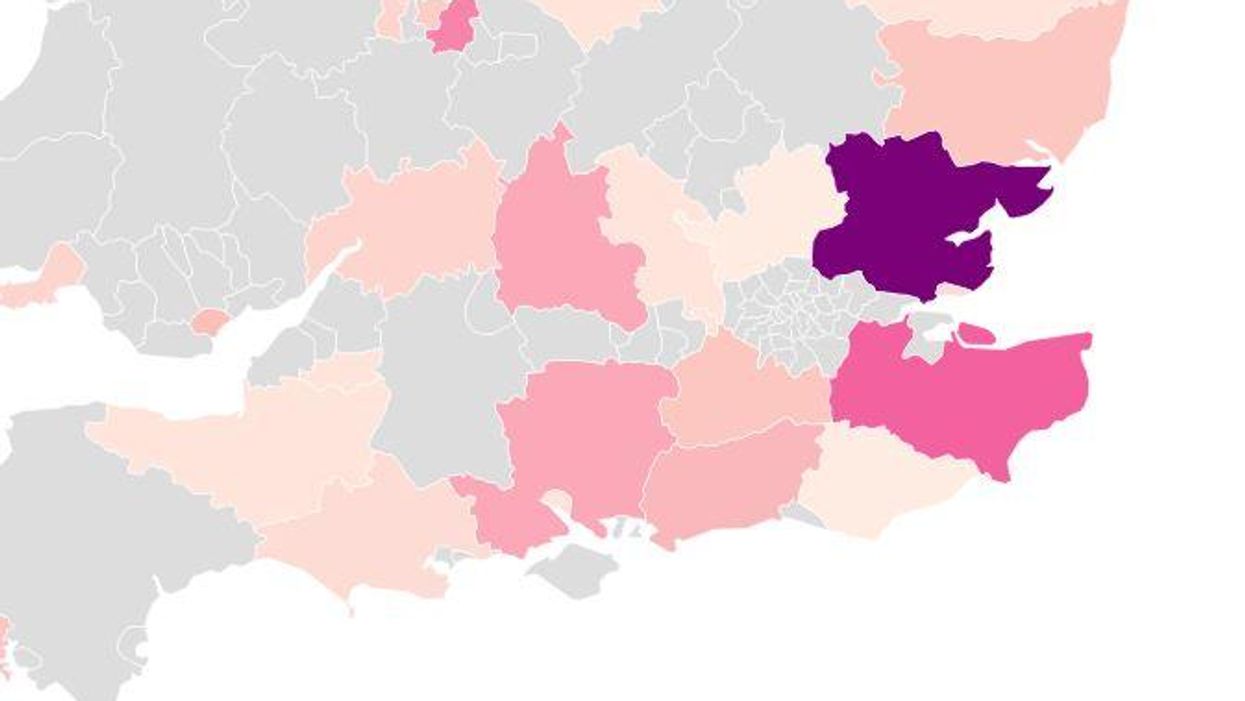News
Joe Vesey-Byrne
Apr 11, 2017

Picture:
indy100/datawrapper
New figures from the Taxpayers' Alliance reveal that 53 more council executives are taking home more than £150,000 compared to 2016.
The Taxpayer's Alliance 'Town Hall Rich List' reveals there are 539 local authority bosses who were in receipt more than £150,000 a year in remuneration.
Total remuneration includes but is not limited to salary, benefits in kind, expenses, bonuses, any stated election duty fees, redundancy payments and employer’s pension contributions, unless stated otherwise in the notes.
The increase of 53 meant there were at least 539 local authority bosses earning the same or more than the Prime Minister.
Chief executives of councils are like permanent secretaries, who head the administration regardless of the political colours in the council chamber.
According to Full Fact, the Prime Minister is paid £150,402 per year, and her Cabinet Secretary and Head of the Home Civil Service is reportedly paid £195,000.
At least 25 local authority employees were remunerated for more than double the prime minister's salary in 2015/16.
However most of the data in their report is focused on those employees receiving the lower threshold of £100,000.
There was no data for Wolverhampton in 2014/15.
Southwark is the highest change in the country, with 25 more employees in receipt of more than £100,000 a year, and the highest total in the country at 44.
Changes in the capital
The average salary for full time employees in the UK was approximately £28,200 in 2016.
According to the Taxpayers' Alliance there at least 2,314 council employees who received a total ‘remuneration’ in excess of £100,000.
Sunderland Council had the highest paid individual employees, with three costing £1,676,023 in total in 2015/16.
All of this comes at a time when the size of Local Government is actually at its smallest since 1998.
Moreover, council tax has risen almost everywhere, often using the maximum 3% increase to fund social care.
This is the tenth year the Taxpayers' Alliance has published the data, which they claim is incomplete due to the opaqueness of local government.
In addition, they suggested that the figure for authorities, such as Lincolnshire were probably under estimated because they included remuneration for teachers.
That being said, they concede that many local authorities publish the salaries and role of their senior staff without being legally required to do so. At present only those paid more than £150,000 must be published.
In response, local authority news website Municipal Journal has pointed out that average chief executive pay was actually declining.
Councillor Claire Kober, chair of the Local Government Association’s resources board, said:
Local government is committed to providing value for money to taxpayers and, nationally, incoming chief executives are being paid lower salaries than their predecessors’ and average chief executive salaries continue to decline year-on-year.
The pay of senior council staff is set by politically proportionate committees of elected councillors and is open to a high level of scrutiny and democratic accountability as a result.
HT Politics Home, Guardian, Full Fact, Municipal Journal
More: Four important things you missed while Brexit was happening
Top 100
The Conversation (0)












